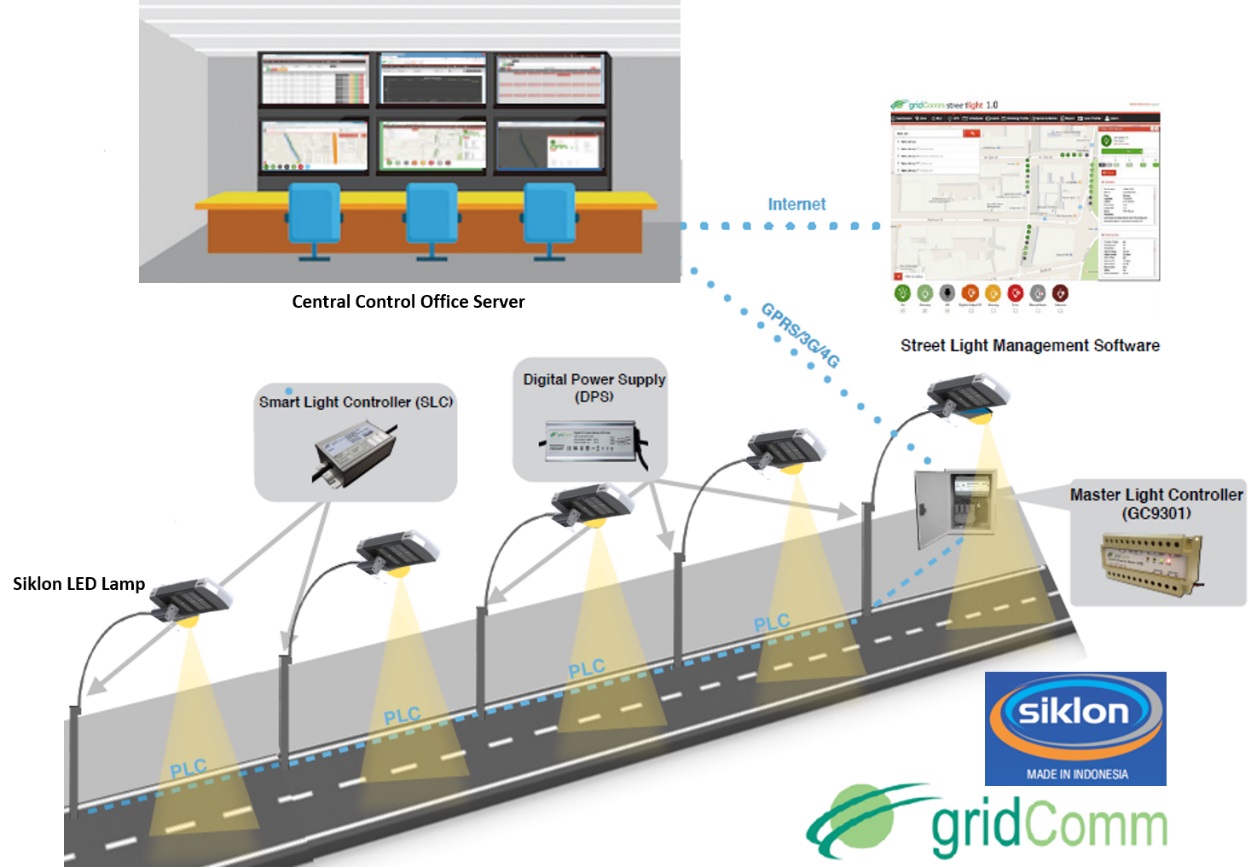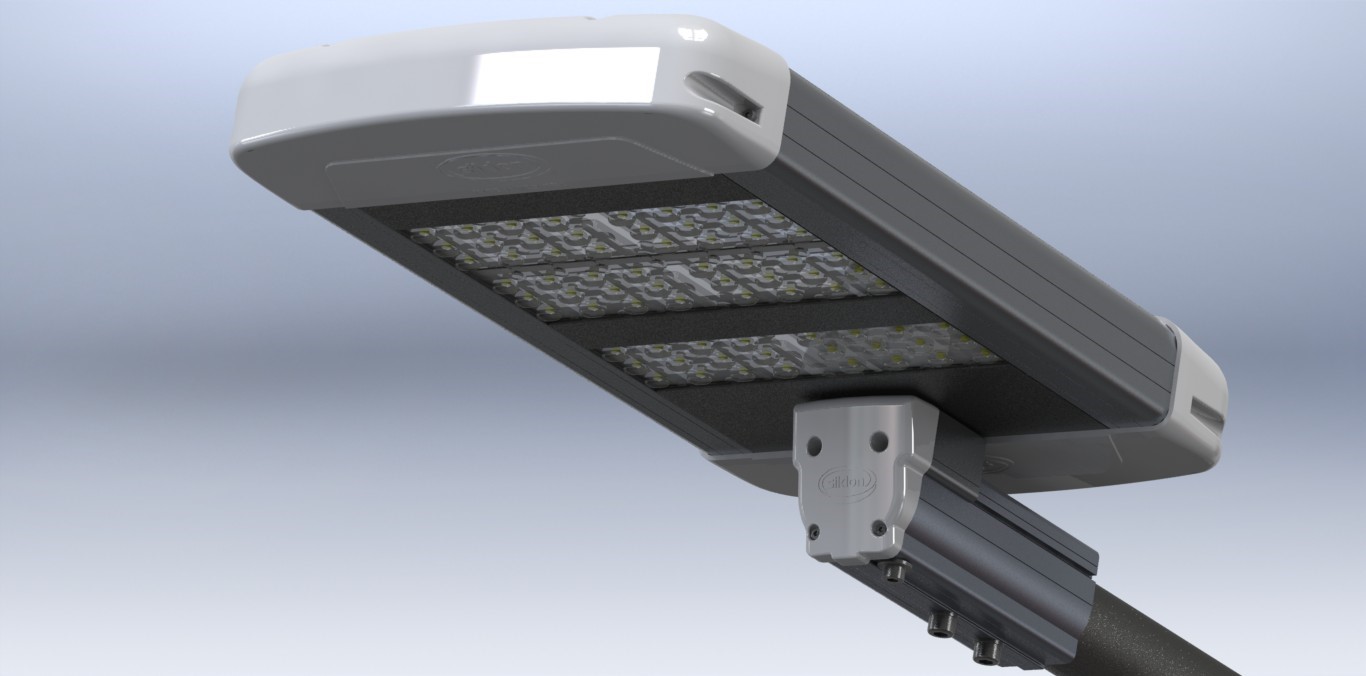
Indonesian cities typically have sub-optimal street lighting systems, with illegal connections, limited metering coverage, and poor service standards. Cities commonly use inefficient mercury and sodium lamps rather than modern lamp technologies.
Only a few cities including Yogyakarta and Makassar have implemented full metering and are switching to more efficient technologies such as LEDs. This shows that 50-80% of a city’s street lighting electricity bill can be saved by optimizing the system.
The national utility, PLN, recovers the cost of electricity used for street lighting and currently bills cities on a ‘lump sum’ basis which tends to overestimate consumption. Many cities are unable to further increase their tax receipts for providing street lighting to inhabitants and are now facing budgetary shortfalls as a result (bills issued by PLN already or will soon exceed the tax receipts).
Due to the slow pace of installing metering in Indonesian cities and the current billing practices, cities have very little incentive to install more energy-efficient street lighting. As such, the Indonesia government has launched a Smart Street Light Initiative (SSLI) in 2014 under the NAMA (Nationally Appropriate Mitigation Actions) framework established to tackle the above issues.
In 2011, about 3068 GWh or 2.3 million tons of CO2 resulted from public street lighting’s power consumption. Up to 40% of CO2 emission reductions can be achieved with more efficient lighting technologies and management.
- Increase the energy efficiency of street lighting by substituting conventional street lighting systems with more efficient street lighting technologies in Indonesian cities and urban areas.
- Reduce energy consumption on the supply side, thus leading to a reduction in greenhouse gas (GHG) emissions resulting in a more efficient, stabile and less carbon intensive energy system.
- Achieve 400,000 tCO2e emission reduction by 2020; considering the current average lifetime (10 years) of LED street lighting technologies, the SSLI NAMA would achieve up to approx. 1,400,000 tCO2e in 2024.
The emission reduction targets can be achieved via implementing several measures such as replacing the traditional mercury or sodium vapor street light bulbs with the more efficient LED lights, implementing smart street light control systems, installing metering systems and improving cable quality and construction workmanships etc.Besides the core objectives, the SSLI will also bring about other co-benefits such as reduced GHG emissions, promotion of energy efficient technologies, energy security of supply (reduced electricity load), electrification (by freeing up existing and new capacity), phase out of electricity subsidies, job creation in value-added installation and maintenance, improved public lighting and living quality, improved night-time safety in cities, leverage of public and private investment.
PT. SIKLON ENERGI NUSANTARA (Siklon), an ISO 9001 and ISO 14001 company, is Indonesia’s first truly LED street light manufacturer with advance manufacturing capability producing high quality LED products. gridComm collaborates with Siklon to conduct test trials in Jakarta in early 2015 as required for bidding the first SSLI tender of 50Ku of street lights. gridComm enables Siklon with a suite of end-to-end Power-Line-Communications-based (PLC) smart street light solution comprising the web-based management software, the concentrator and the individual smart light controller/digital power supply while Siklon integrates and deploys the solution into their LED street lights. The tender attracted interests from several companies amongst some internationally renowned brand names. Eventually, Siklon along with gridComm’s solution emerged as one of the very few companies to win the tender with the highest reliability and lowest cost. Over the next few years, 250Ku of traditional street lights in Jakarta will be fully replaced. Companies that offered RF instead of PLC technologies for this tender were all disqualified due to reliability issues. The success in Jakarta has boosted SIklon’s confidence advancing into other major cities beating the competition hands-down.

gridComm solution makes use of the existing power lines to perform communications with the street lights. This has the advantage of avoiding to lay dedicated communication cables which could be costly and inconvenient. Besides, the fact that communications take place in power lines, there will not be external interferences from wireless signals which could cause the street light control to be unreliable.
gridComm’s patented Digital Power Supply is able to support a wide AC input range from 90V to 300V. Implemented with a programmable MCU, it is adaptive to different types of load with lesser components and simpler circuit design delivering huge cost-saving advantage and longer life span.
gridComm’s PLC-based smart street light solution is the preferred choice for Jakarta because the underlying PLC technology utilizes gridComm’s flagship OFDMA (Orthogonal Frequency Division Multiple Access modulation technique) PLC transceiver chip, GC2200, that scans and selects the best frequencies in noisy environments providing both flexibility and opportunity for full redundancy. The GC2200 is ideal for use in noisy environments where it is effective in tackling signal variations that are commonly present in power line applications due to signal attenuation, impulsive noise, and changes in line impedance. GC2200 automatically configures and self-adapts to the varying conditions on power lines, resulting in extremely reliable and robust communications in a Low-Voltage power network. The GC2200 has 18 independent channels capable of operating with up to 54 carrier frequencies over a wide frequency range of 5 KHz to 500 KHz. This is in stark contrast to other PLC technologies such as FSK and other OFDM modulation schemes.
While FSK largely operates on a single fixed frequency which can be easily interfered with impulse noise, hence providing less reliability. OFDM, such as the G3 and PRIME standard, which is better than FSK due to its capability to switch between frequencies, however requires a minimum number (overhead) of carrier frequencies to work within the operable band of frequencies. Therefore, robustness becomes an issue for these OFDM standards in very noisy environments where minimum number of carrier frequencies cannot be easily obtained. This is where the GC2200’s OFDMA technology truly shines, scaling from 1 to 54 carrier frequencies with additional flexibility available through redundancy settings.
Wireless RF technology (specifically the low-power Zigbee and Bluetooth which are meant for creating Personal Area Networks) can also be found in some small scale street light trial deployments. However, RF suffers from inherent limitations in outdoor applications. It is not as robust as PLC because it is susceptible to many types of interference including wireless signals from a dense city with similar frequency. Weather and obstructions such as metal, trees or walls can also disrupt RF communications, causing them to become unreliable. Imagine when the communication signals of a particular street light node on the street are being interfered, the communications for the downstream street light nodes will be impeded and put out of control. Besides these “natural” interferences, RF is also easily susceptible to hackers since RF signals are accessible over the air. A hacker could easily use a jammer device with strong enough output power to jam the signals with the same operating frequencies. This will not happen in PLC as physical access to the power cable is needed.
gridComm’s patented Digital Power Supply (DPS) integrates PLC and metering functions all within one unit. It is probably the only integrated Digital Power Supply in the world. It is ideal for Smart Street Light control, transforming traditional street lighting into energy-aware, remotely managed monitored networks. The DPS employs a 32-bit MCU to replace the control feedback compensation loop in the traditional power supply. This has the advantage of doing without the failure-prone electrolytic capacitor in the circuit design, hence saving large amount of discrete components and boosting longer life-span. Besides, due to its programmable nature, the DPS is adaptive to different types of loads with simpler circuit design and lower cost. The end result is higher accuracy and performance with capabilities for multiple phase control, non-linear control and load current and failure predictions. Therefore, gridComm DPS can be used to drive LED, Sodium Vapor and Metal Halide lamps.